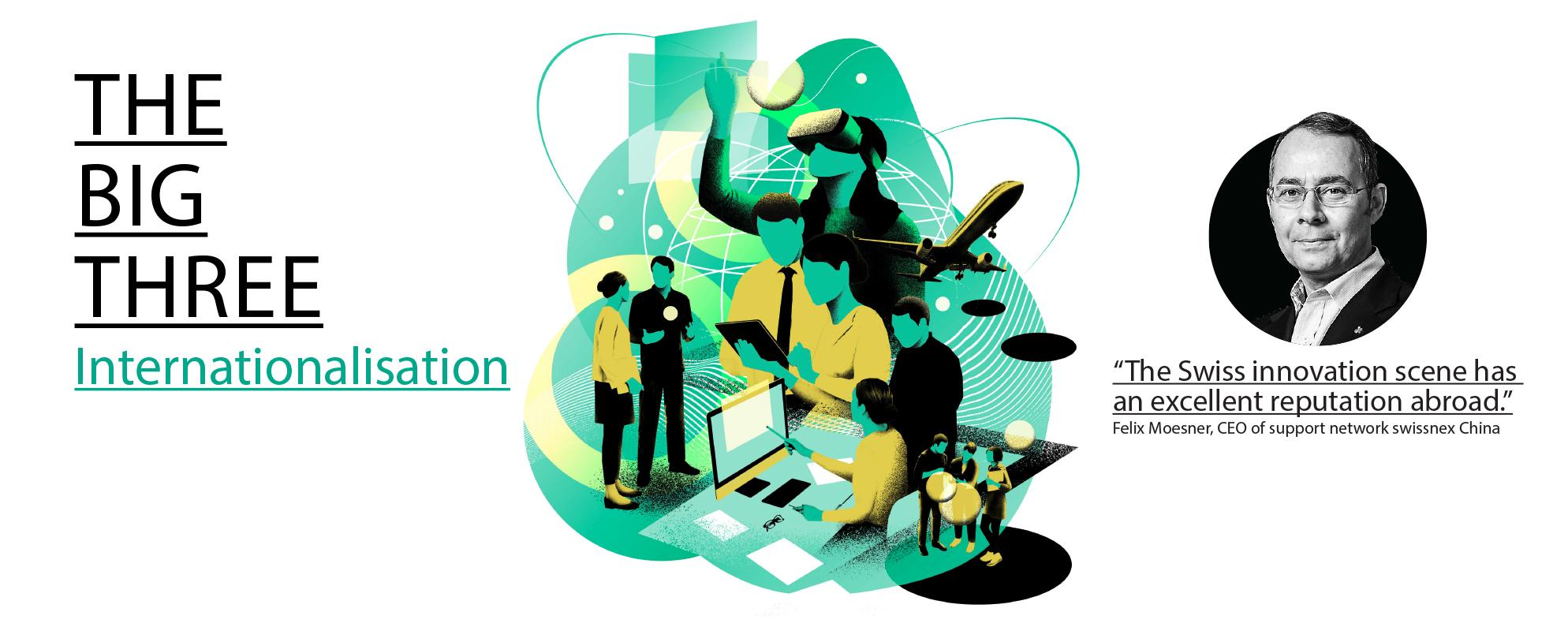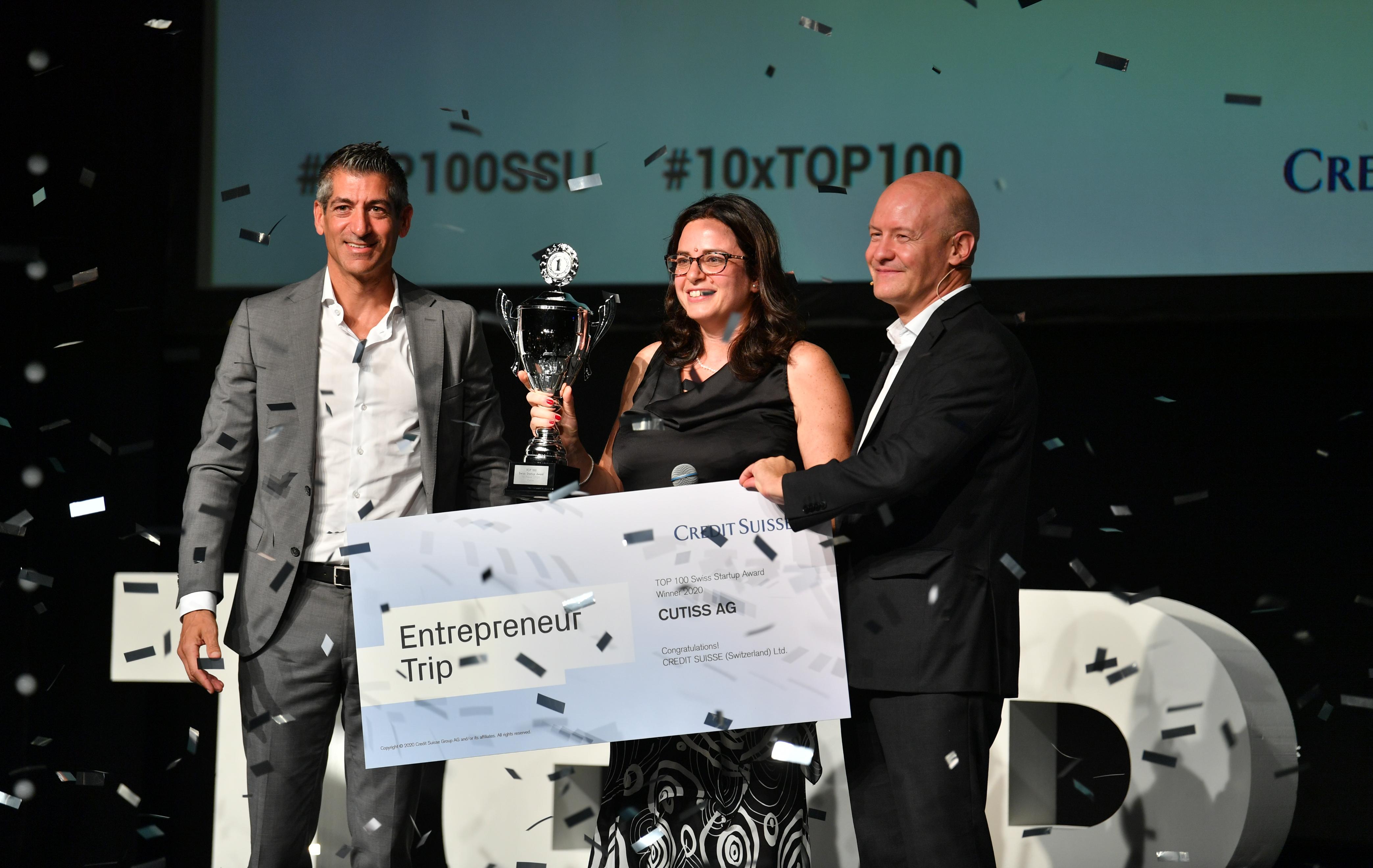Roger Federer, machine learning and success in Asia. Based on three megatrends, we show how the startup ecosystem has changed since the launch of the first TOP 100 Swiss Startup Award in 2011. We talked to Karim Maizar, who heads the startup desk at law firm Kellerhals Carrard, about the different players in the Swiss startup ecosystem.

An article in the commuter newspaper 20 Minuten was the catalyst. Young lawyer Karim Maizar read an article on the tram about the startup desk at the University of Zurich. He contacted it and asked if the founders and young entrepreneurs needed legal advice. That was nine years ago. Today, Maizar heads the startup desk at law firm Kellerhals Carrard. “The fact that startups will need legal assistance has become widely accepted,” he says. However, the ecosystem has not only become more professional in legal terms, but also at the level of the founder’s readiness. “For some years now, founders have been better prepared when they enter the first phase of Venture Kick,” says co-managing director Philip Hassler. “The new generation has much better access to tools and experts.” And the ecosystem is also attracting more and more big names from politics, business and sport.
Roger Federer is involved in the running shoe brand On (TOP 100 2013-2015). Top football player Stephan Lichtsteiner acts as a brand ambassador for security startup UrbanAlps (TOP 100 2018). Former federal councillor Johann Schneider-Ammann has been a member of the board of directors of Zug blockchain incubator CV VC since the middle of the year. And former Novartis CEO Daniel Vasella has been on the board of biotech startup Numab (TOP 100 2013-2014) since October 2019.
Such names increase the attraction of the scene and complement the work of highly specialised service providers such as Maizar. The 42-year-old lawyer advises his clients primarily on financing, employee participation programmes and exits. His team accompanied 80 startup financing rounds last year, one in three in Switzerland. “Today, large companies also play a bigger role,” says Maizar. Pharmaceutical, industrial and media groups handle the scene very systematically. Many of them also act as strategic investors, with six of the 10 best TOP 100 startups in 2011 now with corporate groups.
Companies and ecosystems are moving ever closer together. Thanks to the Scale Up Bootcamps supported by digitalswitzerland and the Gebert Rüf Foundation rapidly growing startups can matchmake with selected corporates. The exchange also takes place at a personnel level: for example, immunologist Anne Schmidt was head of project leaders at Novartis before she resigned and founded biotech startup Elthera. She also managed to gain Dominik Escher as chairman of the board: the ESBATech founder sold his company to big pharma for USD 590 million in 2009, and like Michael Born – formerly Dacuda, now PXL Vision (28) – belongs to that species of serial entrepreneurs who stay in the ecosystem and pass on their startup experience as investors, board members or CEOs.
Schmidt is working on an antibody that binds a highly specific molecule to the surface of solid tumours. She is also organising the funds for entry into the preclinical phase from 2021. “Naturally, I benefit from my experience and the network I’ve created over the past 25 years,” she says. Ten years ago, Schmidt would have been a rarity on the Swiss innovation scene, but founders in their fifth or sixth decade are no longer uncommon. The proportion of women in the scene is also increasing. The map of female CEOs on startupticker’s platform numbered 120 startup bosses in March. Two of these, Daniela Marino and Dorina Thiess, are on the podium of the TOP 100 Swiss Startup Award this year.
This is the third and final part of Jost Dubacher’s TOP 100 Swiss Startup Magazine 2020 article on the evolution of the Swiss startup ecosystem. Read the first part, Ariel Lüdi's thoughts on digitalisation, and the second part, Felix Moesner's reflections on internationalisation.




